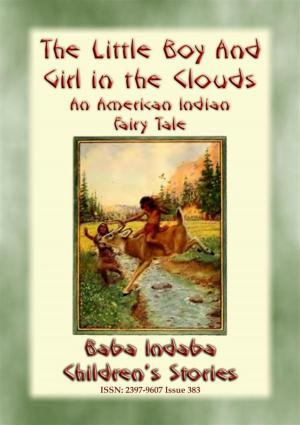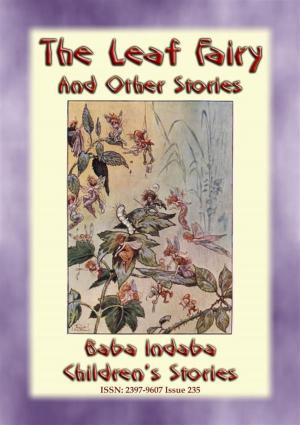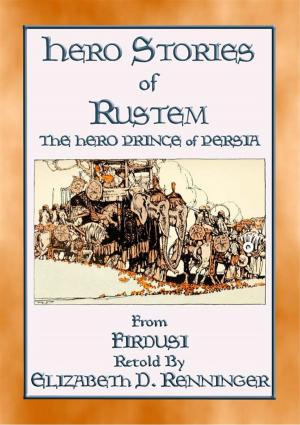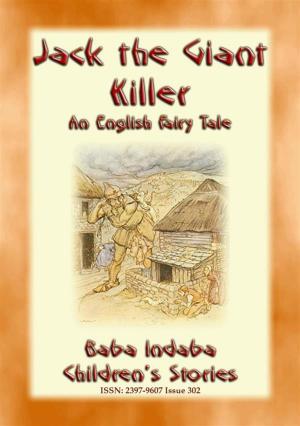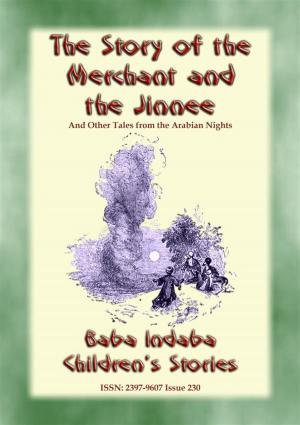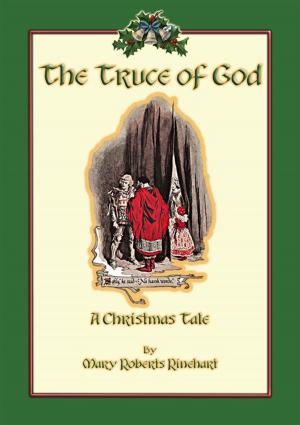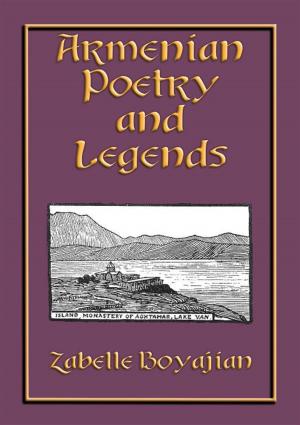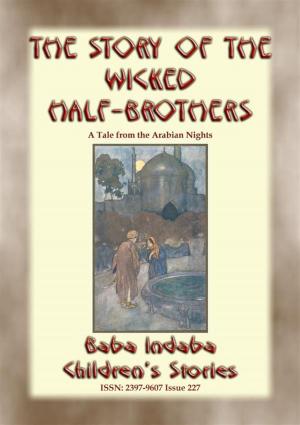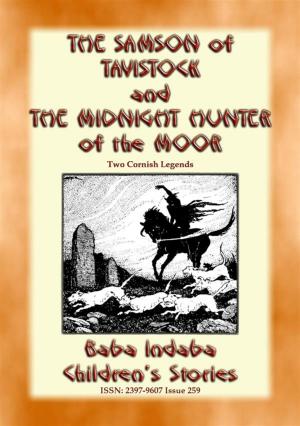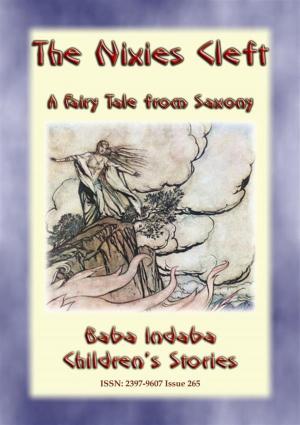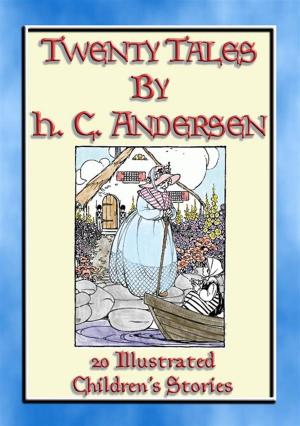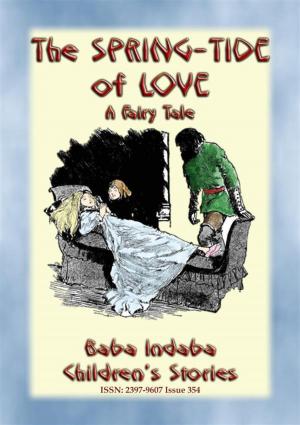KORYAK FOLKLORE - 24 tales from the Kamchatka Penninsula
Kids, Fiction, Fairy Tales, Fiction - YA, Fiction & Literature| Author: | Compiled by Waldemar Borgoras | ISBN: | 9788827560761 |
| Publisher: | Abela Publishing | Publication: | January 30, 2018 |
| Imprint: | Language: | English |
| Author: | Compiled by Waldemar Borgoras |
| ISBN: | 9788827560761 |
| Publisher: | Abela Publishing |
| Publication: | January 30, 2018 |
| Imprint: | |
| Language: | English |
In this volume you will find 24 Koryak folk tales of The Mice Girls, Of Whale Festivals, The Ermine People, Fox Woman, Fish Woman, Monster Man, Bumblebees, Shellfish-Girls plus many more.
Unlike European folklore, these stories do not have the dramatic turns of Western folk-lore. There is no Cinderella nor a Puss in Boots. The struggle for survival is the perpetual theme, and no wonder, for the narrators dwell in a remote and hostile landscape.
Because of their geographic location, Koryak Folklore has more in common with the lore of the Tlingit, Tsimshian, and other Northwest Coast Amerindians suggesting a broad cultural area stretching from current day Kamchatka across the Bering Strait into Alaska, Canada and Washington State. It is in these cultures that the mythology centres around the supernatural shaman Quikil (Big-Raven) who was the first man and protector of the Koryak and who features prominently in this volume.
So, if you enjoy Native American folklore then this little known volume will be a welcome addition to your library.
10% of the net profit from the sale of this book will be donated to charities.
NOTE: The name Koryak was from the exonym word 'Korak' meaning 'with the reindeer (kor)'. Koryaks practice a form of animist belief system especially through shamanism. The Koryak are indigenous to north-east Asia and live mainly on the northern part of the Kamchatka peninsula in what is now the Russian Federation. The Koryak Autonomous Region is just a little larger than the state of Arizona, but with a current population of fewer than 35,000.
The Koryak were conquered by Cossack pioneer-adventurers in the end of the seventeenth century and more or less incorporated into the Russian empire by the middle of the eighteenth. The Tsar levied an annual fur tribute and demanded some transportation services, but otherwise left them alone. The Soviets collectivized their subsistence production, and Stalin's Terror saw many shamans and successful reindeer herders summarily executed.
TAGS: Folklore, fairy, tales, myths, legends, stories, children, bedtime, fables, Koryak, Kamchatka, shaman, big raven, kor, reindeer, Quikil, little,-bird-man, raven man, mice, mouse-girls, small, kamak, harpoon-line, kĭlu, bumblebees, eme'mqut's, ememqut, whale, festival, cannibal, fox woman, ermine people, shellfish girl, perches, magpie man, daughter, swallow, wife, gull woman, cormorant woman, yinia ñawġut, marriage, fish man, envious, monster man
In this volume you will find 24 Koryak folk tales of The Mice Girls, Of Whale Festivals, The Ermine People, Fox Woman, Fish Woman, Monster Man, Bumblebees, Shellfish-Girls plus many more.
Unlike European folklore, these stories do not have the dramatic turns of Western folk-lore. There is no Cinderella nor a Puss in Boots. The struggle for survival is the perpetual theme, and no wonder, for the narrators dwell in a remote and hostile landscape.
Because of their geographic location, Koryak Folklore has more in common with the lore of the Tlingit, Tsimshian, and other Northwest Coast Amerindians suggesting a broad cultural area stretching from current day Kamchatka across the Bering Strait into Alaska, Canada and Washington State. It is in these cultures that the mythology centres around the supernatural shaman Quikil (Big-Raven) who was the first man and protector of the Koryak and who features prominently in this volume.
So, if you enjoy Native American folklore then this little known volume will be a welcome addition to your library.
10% of the net profit from the sale of this book will be donated to charities.
NOTE: The name Koryak was from the exonym word 'Korak' meaning 'with the reindeer (kor)'. Koryaks practice a form of animist belief system especially through shamanism. The Koryak are indigenous to north-east Asia and live mainly on the northern part of the Kamchatka peninsula in what is now the Russian Federation. The Koryak Autonomous Region is just a little larger than the state of Arizona, but with a current population of fewer than 35,000.
The Koryak were conquered by Cossack pioneer-adventurers in the end of the seventeenth century and more or less incorporated into the Russian empire by the middle of the eighteenth. The Tsar levied an annual fur tribute and demanded some transportation services, but otherwise left them alone. The Soviets collectivized their subsistence production, and Stalin's Terror saw many shamans and successful reindeer herders summarily executed.
TAGS: Folklore, fairy, tales, myths, legends, stories, children, bedtime, fables, Koryak, Kamchatka, shaman, big raven, kor, reindeer, Quikil, little,-bird-man, raven man, mice, mouse-girls, small, kamak, harpoon-line, kĭlu, bumblebees, eme'mqut's, ememqut, whale, festival, cannibal, fox woman, ermine people, shellfish girl, perches, magpie man, daughter, swallow, wife, gull woman, cormorant woman, yinia ñawġut, marriage, fish man, envious, monster man

